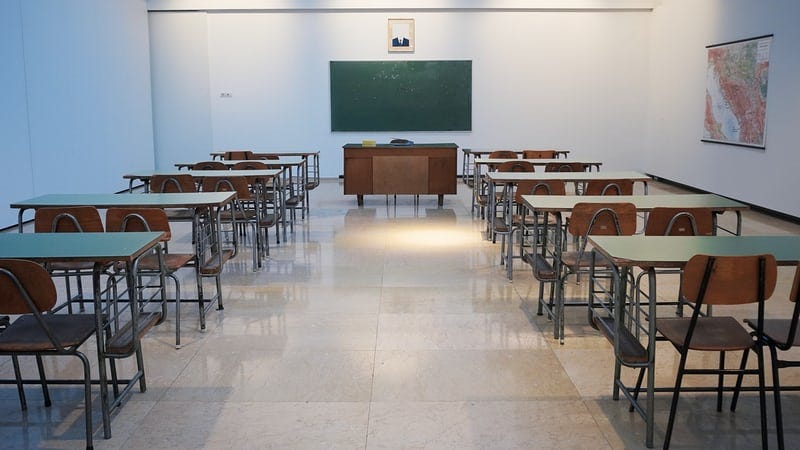College is a staple of the American Dream.
It’s traditionally a stable yet increasingly unpredictable path to take these days.
For those fortunate enough to be able to dish out a quarter of a million dollars on a degree, they should take full advantage of it and dig deeper into what they are secretly paying for because it can in fact be worth it.
When we are younger, we tend to use less of what we pay for since we cannot comprehend the true cost of something since our parents most likely paid for it. Not until we get older do we start having massive regret about not failing, experimenting and trying new things not concerned about embarrassment or rejection as a student.
We would receive so much more from our money if we used more than 10% of it. Tuition doesn’t just cover room, board and books. Look outside of the classroom and the places and people that don’t last forever. This will help stabilize the secure path towards a degree. When you are younger, this is your time to try out anything.
As a student at NYU, I’m beyond privileged and grateful to be able to attend a global renowned university that exposes me to all walks of life and provides me incredible opportunities that are far beyond the classroom.
If wondering how I’m receiving a free undergraduate education, read here.
Is it worth it?
To everyone it’s different. If you’re attending to simply get it over with, might as well save that money and get to work instead. Since I remind myself every time I step on campus what I put in is what I get out, it feels like a worthwhile investment especially since I have a scholarship.
But the real reason why it feels like an investment is mainly due to the location and my focus beyond the classroom, something students don’t take enough advantage of.
Meeting diverse students with different interests, attending clubs and events that are out of my comfort zone, trying out different opportunities through internships in the area, learning about professor’s backgrounds, and taking note of all the incredible perks, programs, excursions and free food allows my investment to compound overtime.
Yet over the years, with our short attention spans, instant gratification and self employment revolution, millions of high school grads and adults without a college degree are rethinking the traditional path of stability that doesn’t seem to be that stable anymore.
As countless students from top universities, most notably Columbia, whose graduates carry the most debt, this is worrisome as tuition is only rising. School requires a lot of patience, time, mental stamina and a certain type of individual to attend. Not everyone is made for school, something I always thought I wasn’t a true fit for either. Plus with the large potential payoff to earn big in venture capital, private equity or within the entrepreneurial world early on, kids are less hesitant on change and taking the unbeaten path for happiness. There are so many possibilities they are winging it. A few of my colleagues even dropped out in 2020 to pursue “their dreams”.
Higher-education and healthcare are the slowest, most convoluted, confusing, expensive and opaque industries. They are based on old-age principles that don’t work for this day in age. For example, the lack of financial literacy and focus on mental health, climate change and networking to succeed in this competitive saturated world is avoided in classrooms while the healthcare system is becoming more expensive as people with health insurance still get into medical debt! (Read here how it can happen to you)

In Reverse
Due to the pandemic, the education system took a halt and elementary school kids are learning less and many are nearly one full school year behind where they would have been all while two-thirds of our schools face a teacher shortage as their income is on a steady decline and not enough.
Education is the largest propellant and accelerator for economic growth, prosperity, financial freedom and flexibility. We can only get so far without acquiring tangible skills. The country will stagnant and the top 1% wil soon own 100% of the wealth in this country, up from 89% for the top 20% today.
This learning gap will reduce lifetime earnings for K-12 students by an average of $49-$61k according to consulting giant, McKinsey. By the time these kids join the workforce in ~2040, it is estimated the U.S will loose as much as $188 billion a year in GDP due to skipped, unfinished learning on top of already lower scores in basic skills.

The Dream
Higher-education is becoming pricier even over Zoom because it can. It’s an inelastic system like Apple. Anyone will pay any price for an iPhone because there will always be buyers. Yet the education system is becoming less American everyday.
It should be about affordability and acceptance not rankings, prestige and how many students institutions deny. What’s driving these costs are lack of teaching innovation, selectivity, location, and prestige instead of the results of graduates’ future endeavors. It would be far better for US News rankings to be based on graduate’s happiness and satisfaction levels instead of on the amount of money earned or better yet, type of company they work for. It’s proven that up to ~$70k in income, happiness starts to plateau and money should never be an indicator of success. Titles and positions don’t matter after a certain point.
Each year institutions pronounce to the incoming class how many students they didn’t accept. Instead they should elaborate on how many Pell Grants, scholarships and tuition assistance they provided. This is a rigged system where more money = higher chance of getting in and institutions will always gravitate towards donations and money first distancing perspective students and the “Varsity Blues” audience away.
No doubt the traditional college experience cannot be replaced from the couch yet when it comes to the cost, it doesn’t budget and only rises. On average, the top 10 colleges have endowments worth a billion dollars or more, larger than the GDP of most emerging markets. When it comes to times of hardship, they don’t bother making education more affordable to help the bottom 90% turn into millionaires and instead continue to pave the path for the top 1% to become billionaires.
At the same time, far too many students are focused on the wrong things when it comes to college choices. Ranking are based on how many kids institutions deny, and the pay of administrators and faculty. Only focusing on rankings, prestige and sororities won’t help them succeed in life and lead them to be ill-equipped.
In college, I believe students should focus on what they can get out of an experience and most importantly how they can use that degree to better society not only give to themselves but give of themselves to others.

Gender Enrollment
For the first time in history, college enrollment has not kept pace for men as there are officially more women graduates. This is a good and bad thing. Terrific that women are getting more degrees, part of the workforce and prepared to fill leadership positions to break the gender gap yet this still hasn’t straightened out the gender pay gap as women earn 20 cents to the dollar and loose out on other opportunities that men seize.
What explains the enrollment drop?
In this age of social media, side-hustles and day trading, young men seem to not only be taking larger risk as seen in their portfolios but have more non-degree opportunities available to them which provides them the freedom to save time, money and headaches in the long-run.
Many fields and companies don’t require degrees anymore and sometimes pay better because of it. The earnings potential is unlimited when you work for yourself but how secure is it? Men opt out because they can more than women.
There is no straightforward answer to higher education as everyone must weigh their financial situation first. If you have the money, it doesn’t hurt to try a gap year but you have to know what your goals are first. It’s easier than ever to borrow half a million dollars to fund your medical dream but without a purpose, you’ll feel lost.
With home-schooling on the rise and a decline in male enrollment, these changes are certainly transforming the space and I’m curious where it will head next. Half-way through my college career, I doubt I’ll see major reform in the price structures or expansion of course offerings in the next 2 years so I write about it here.
Something I wish was adopted when I was a senior of HS was to banish the billion dollar industry of standardized tests and with schools increasing their acceptance rates, this is relieving. This is a major blessing in disguise for students these days.
I believe the higher-ed system needs to be democratized by removing less friction in the admissions process and cost. The kids who have access to the library should have as much assess as those who have everything.
Let’s get the classroom to become the real world.

